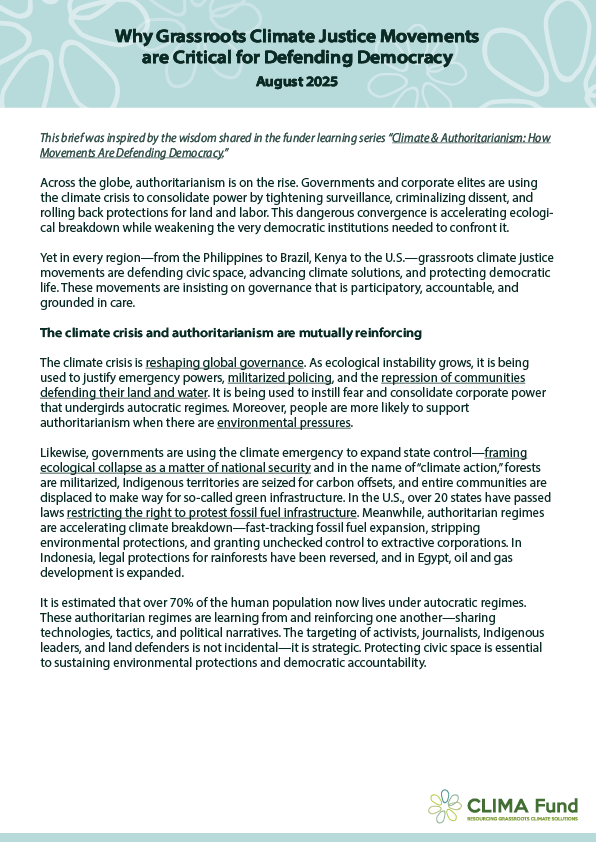
Authoritarianism is on the rise globally. Governments and corporate elites are using the climate crisis to consolidate power, and the climate crisis is creating the enabling conditions for authoritarianism. This dangerous convergence is accelerating ecological breakdown while weakening the very democratic institutions needed to confront it.
Yet, from the Philippines to Brazil, Kenya to the United States, grassroots climate justice movements are defending civil space, advancing climate solutions, and protecting democratic life. These movements are insisting on governance that is participatory, accountable, and grounded in care.
Read Why Grassroots Climate Justice Movements are Critical for Defending Democracy now.
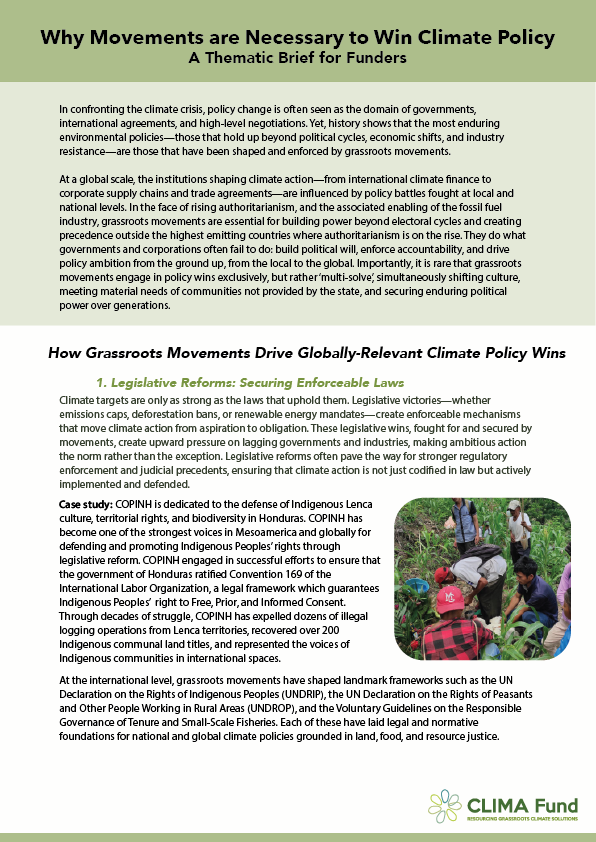
In confronting the climate crisis, policy change is often seen as the domain of governments, international agreements, and high-level negotiations. Yet, history shows that the most enduring environmental policies—those that hold up beyond political cycles, economic shifts, and industry resistance—are those that have been shaped and enforced by grassroots movements. Grassroots movements do what governments and corporations often fail to do: build political will, enforce accountability, and drive policy ambition from the ground up, from the local to the global.
To learn how grassroots movements are driving globally-relevant policy wins, read Why Movements are Necessary to Win Climate Policy now.
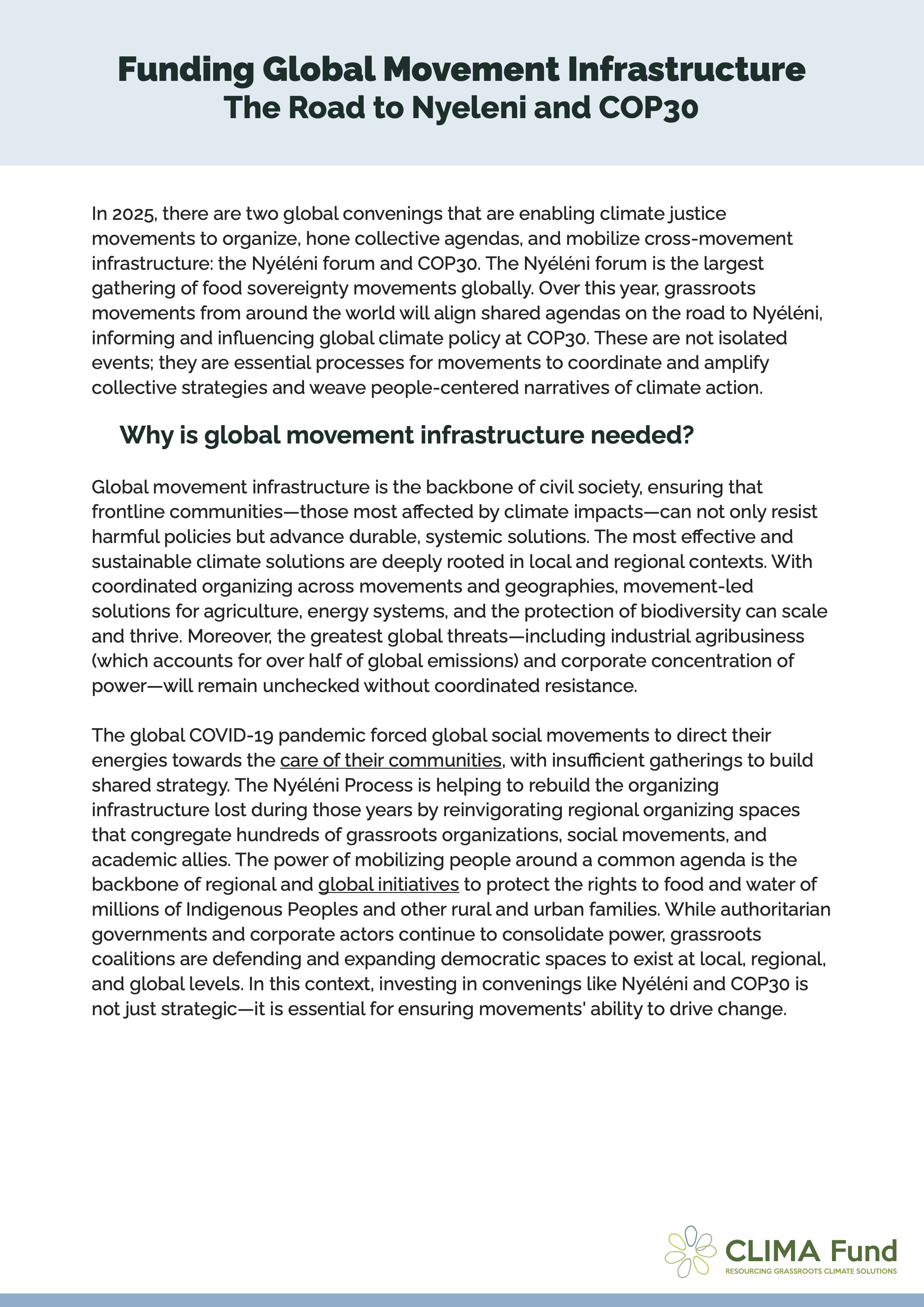
In 2025, there are two global convenings that are enabling climate justice movements to organize, hone collective agendas, and mobilize cross-movement infrastructure: the Nyéléni forum and COP30. These convenings are essential processes for movements to coordinate and amplify collective strategies and weave people-centered narratives of climate action. In this thematic brief, we outline the context of these convenings and the role philanthropy can play.
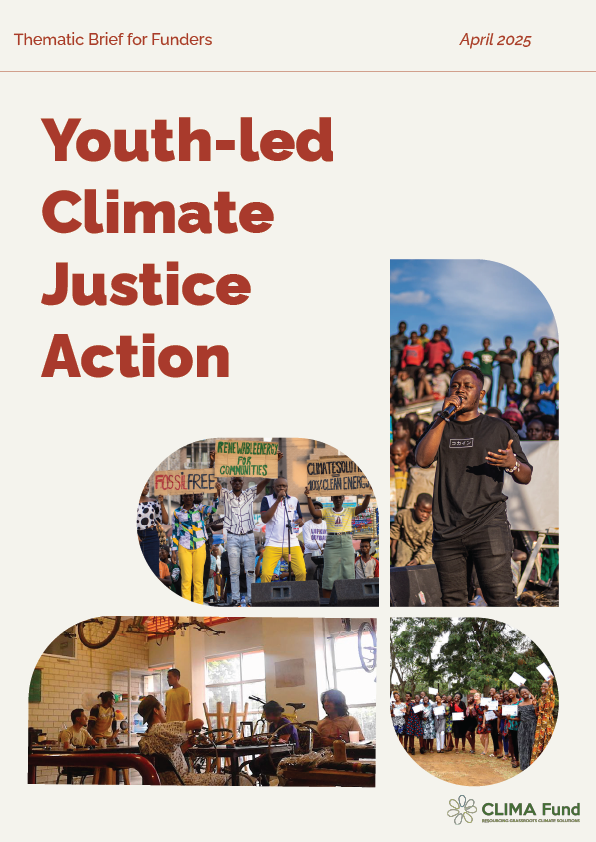
While youth-led climate justice movements effectively tackle the root causes of the climate crisis, they receive a mere 0.76% of grants from the largest climate foundations. We are working to change that.
We fund youth-led climate justice movements because young people globally are implementing creative solutions to cool the planet and reimagine our communities.
To learn how our youth-led movement partners are developing leadership, activism, and artistic capacity to respond to the climate crisis. Read Youth-led Climate Justice Action now.
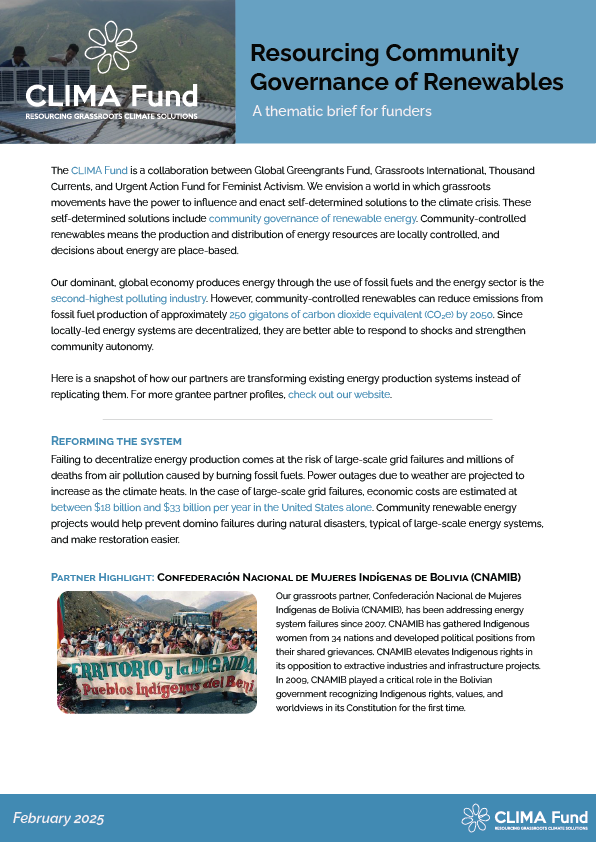
The global economic system is reliant on the burning of fossil fuels, including for energy production. The energy sector is the second-highest polluting industry in the world. But it doesn’t have to be this way.
To learn how community-governed renewables bolster community resilience, improve local economies, and prevent large-scale environmental degradation, read Resourcing Community Governance of Renewables now.
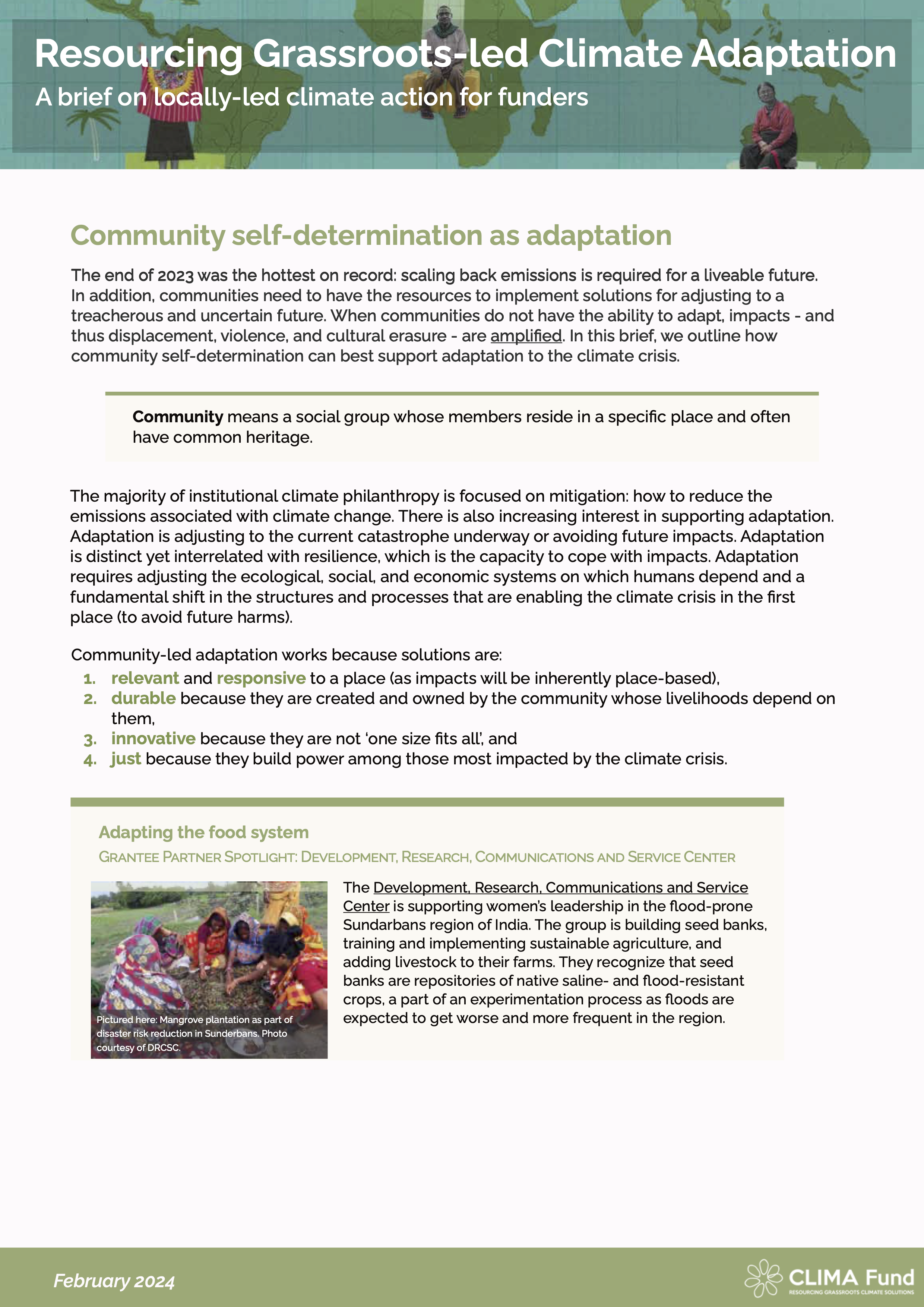
A brief on locally-led climate action for funders
The end of 2023 was the hottest on record: scaling back emissions is required for a liveable future. In addition, communities need to have the resources to implement solutions for adjusting to a treacherous and uncertain future. When communities do not have the ability to adapt, impacts – and thus displacement, violence, and cultural erasure – are amplified. In this brief, we outline how community self-determination can best support adaptation to the climate crisis.
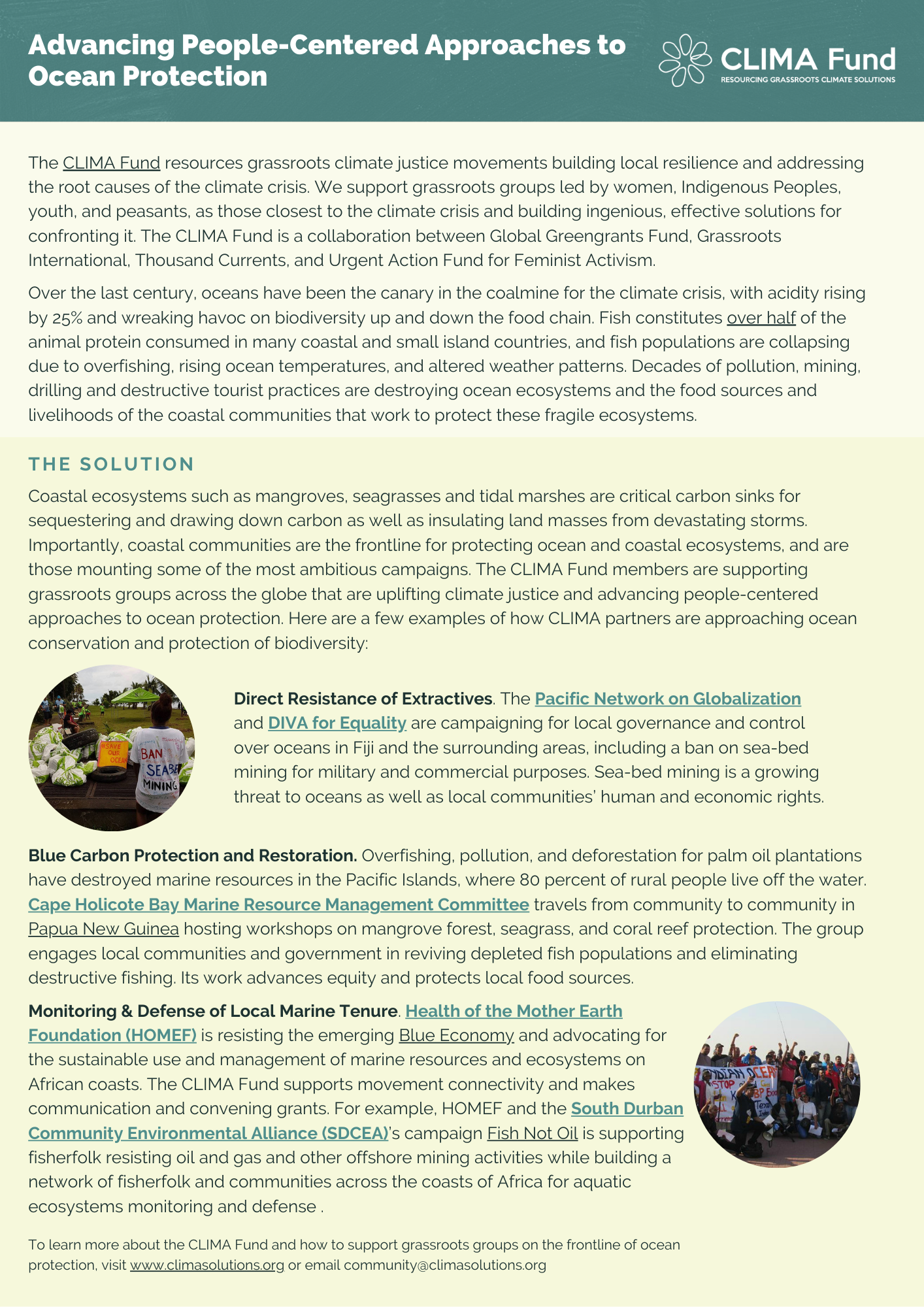
Over the last century, oceans have been the canary in the coal mine for the climate crisis, with acidity rising by 25% and wreaking havoc on biodiversity up and down the food chain. Fish constitutes over half of the animal protein consumed in many coastal and small island countries, and fish populations are collapsing due to overfishing, rising ocean temperatures, and altered weather patterns. Decades of pollution, mining, drilling, and destructive tourist practices are destroying ocean ecosystems and the food sources and livelihoods of the coastal communities that work to protect these fragile ecosystems.
Learn more about how CLIMA partners are approaching ocean conservation and protection of biodiversity.
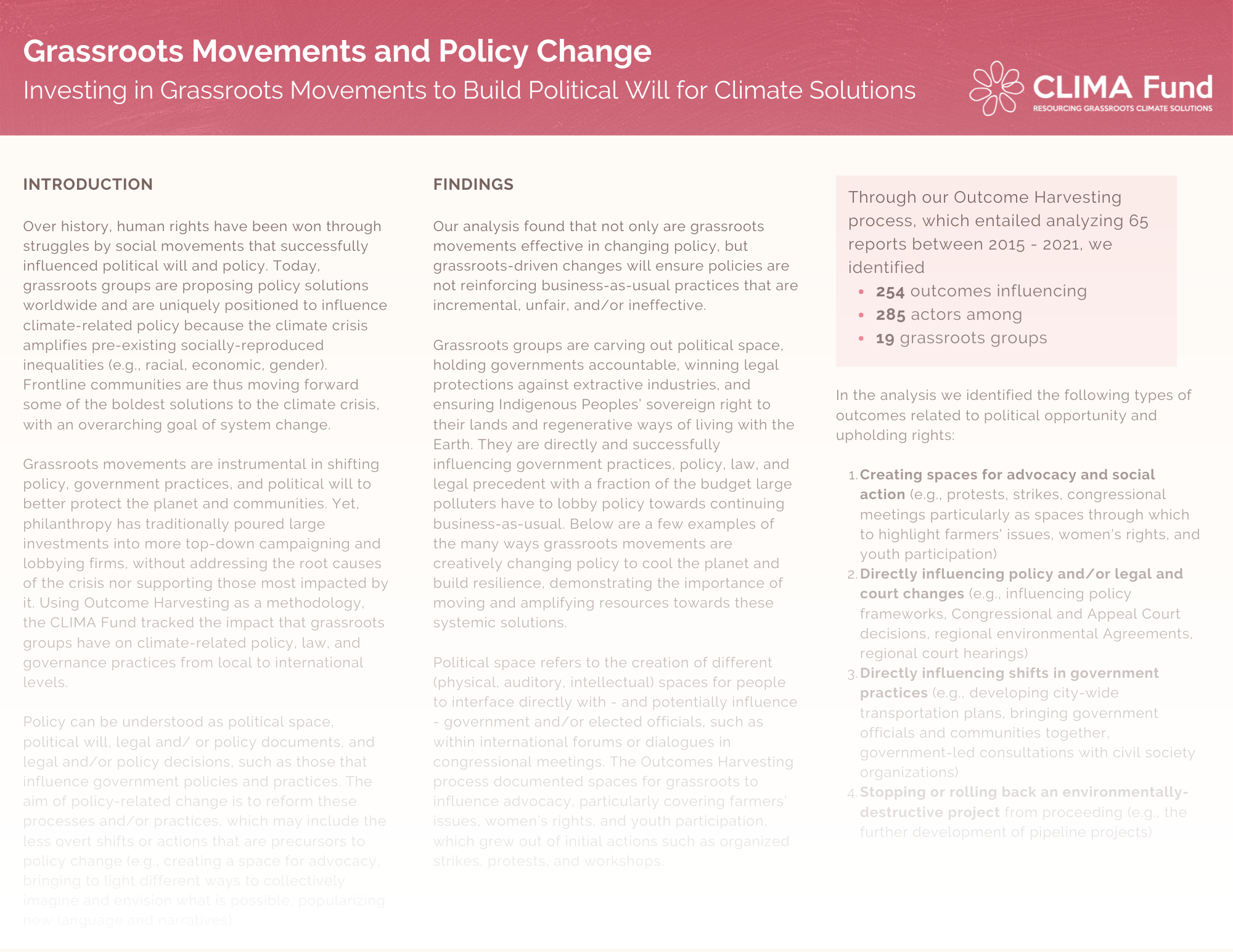
Grassroots movements are transforming the landscape of climate solutions globally, addressing the multiplicity of root causes and effects of the climate crisis in lasting ways.
As part of our learning and evaluation process, we employed an Outcome Harvesting methodology to learn how our grassroots movement partners are advancing systemic and policy change to address the climate crisis. We analyzed 65 grant reports from 19 of our grassroots partners between 2015 – 2021 and identified 254 outcomes (social and political changes) influencing 285 actors.
Read now to learn how grassroots movements advance policy change and build political will for implementing climate solutions. Grassroots movements are doing this by creating spaces for advocacy and social action, directly influencing policy and/or legal and court changes, influencing shifts in government practices, and stopping or rolling back environmentally destructive projects.
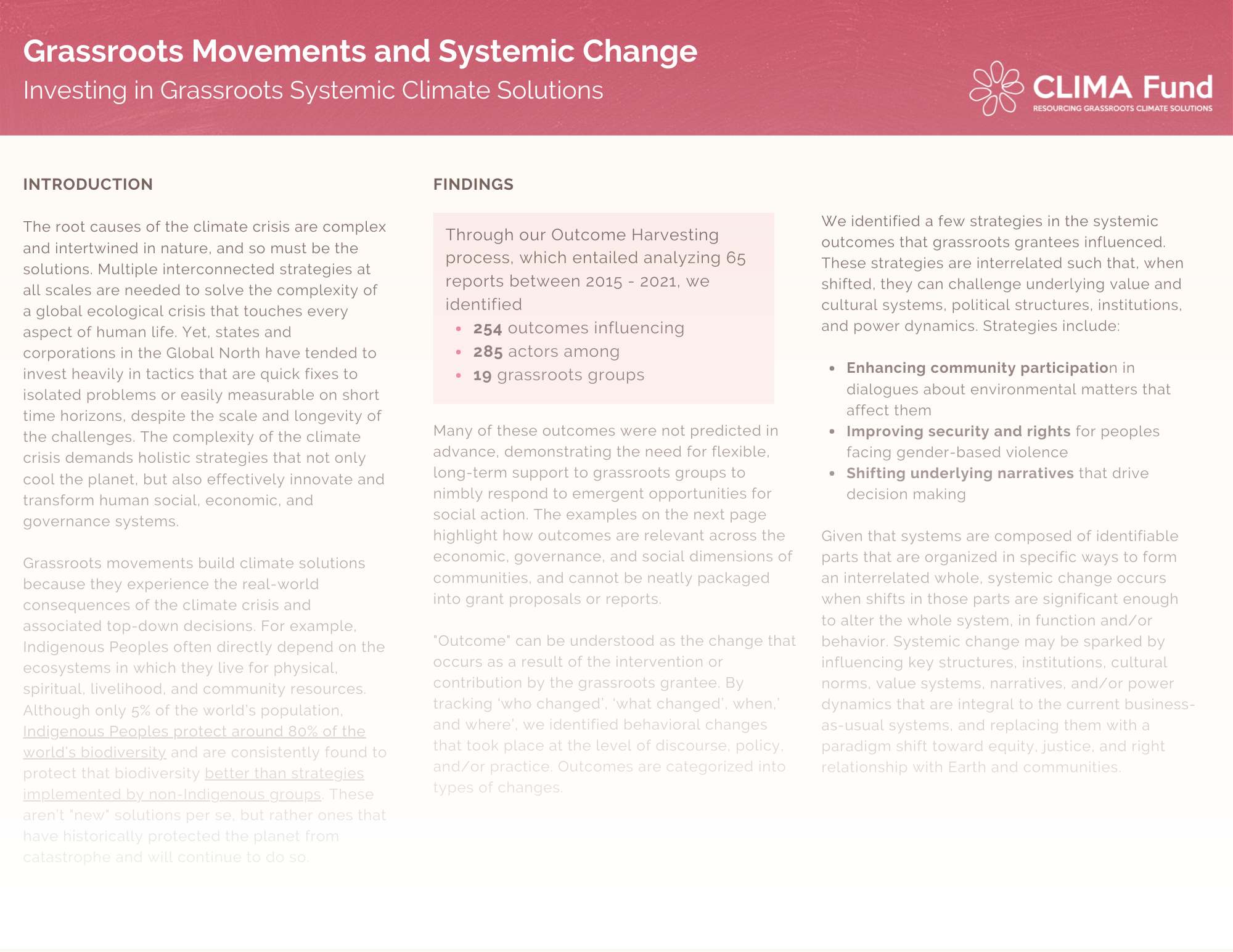
Read now to learn how grassroots movements advance systemic change by enhancing community participation, improving security and rights, and shifting underlying narratives that drive decision-making.